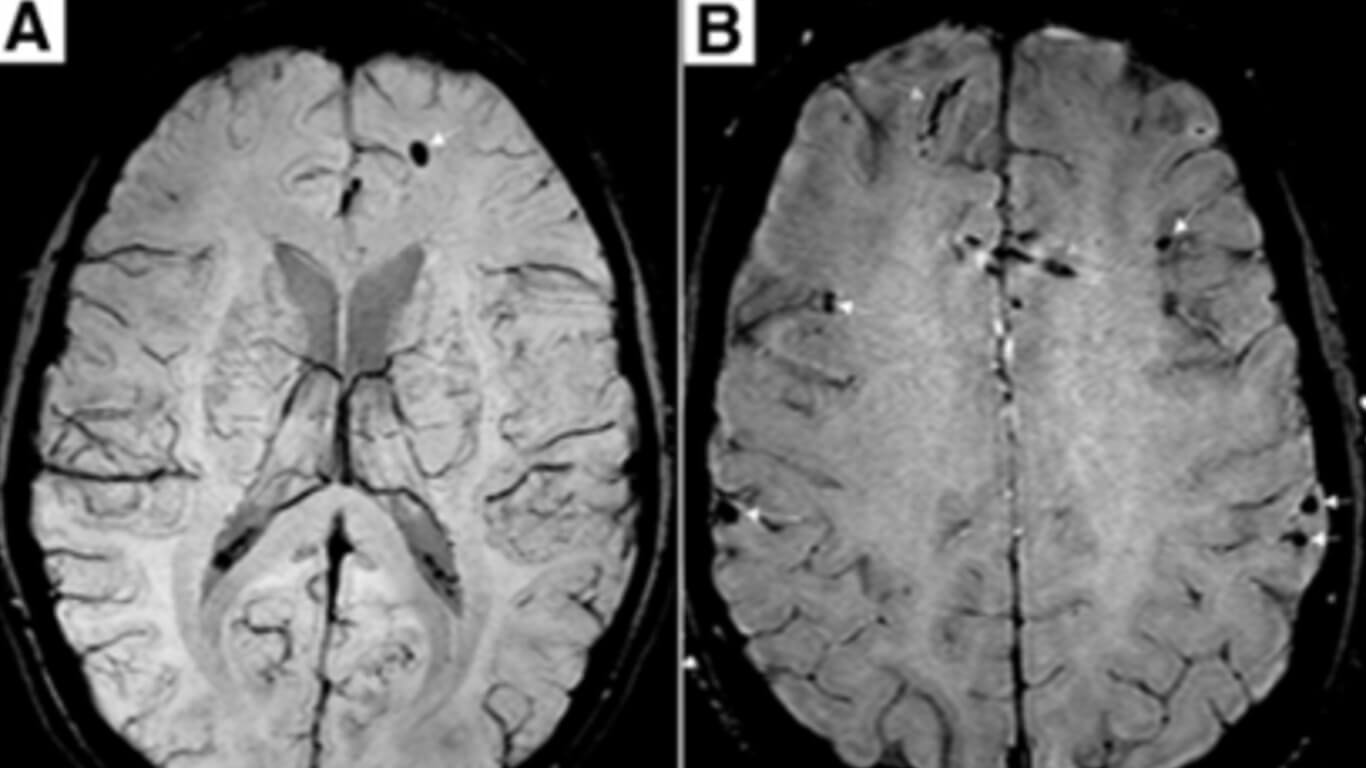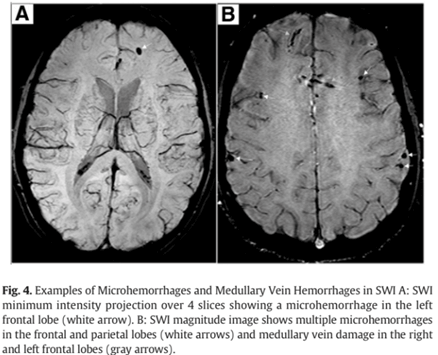
MR imaging findings in mild traumatic brain injury with persistent neurological impairment
By: Karen Holzberger, President & CEO of SpinTech MRI
Author(s): Gabriela Trifan a , Ramtilak Gattu b , Ewart Mark Haacke b,c , Zhifeng Kou b,c , Randall R. Benson
Journal: Magnetic Resonance Imaging
Published: 2017
Read Full Paper: https://www.sciencedirect.com/science/article/abs/pii/S0730725X16302466?via%3Dihub
Abstract

Traumatic brain injury (TBI) is a widespread cause of neurologic disability, with > 70% of cases being mild in severity. Magnetic resonance imaging provides objective biomarkers in the diagnosis of brain injury by detecting brain lesions resulting from trauma. This paper reports on the detection rates of presumed trauma-related pathology using fluid-attenuated inversion recovery (FLAIR) and susceptibility-weighted imaging (SWI) in TBI patients with chronic, persistent symptoms.
Methods
180 subjects with persistent neurobehavioral symptoms following head trauma referred by personal injury attorneys and 94 asymptomatic, age-matched volunteers were included in the study. 83% of TBI subjects were classified as mild. Results: TBI subjects had a significantly greater number of lesions detected by FLAIR than controls (42% vs. 22%) and more lesions detected by SWI than controls (28% vs. 3%). To reduce the confounding effects of aging, we examined mild TBI subjects < 45 years of age, which reduced the rate of lesions detected by FLAIR (26% vs. 2%) and SWI (15% vs. 0%). This younger group, which contained few age-related lesions, also demonstrated that subcortical lesions on FLAIR are more specific for TBI than deeper lesions.
Conclusions
While the presence of litigation in mild TBI cases with incomplete recovery has been associated with greater expression of symptomatology and, by extension, poorer outcomes, this study shows that mild TBI patients in litigation with chronic, persistent symptoms may have associated brain injury underlying their symptoms detectable by MRI biomarkers.

